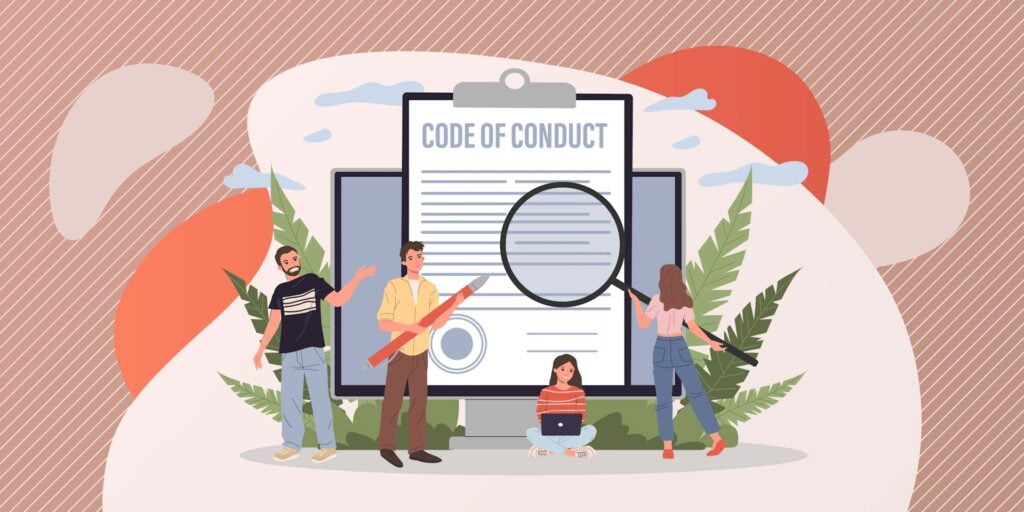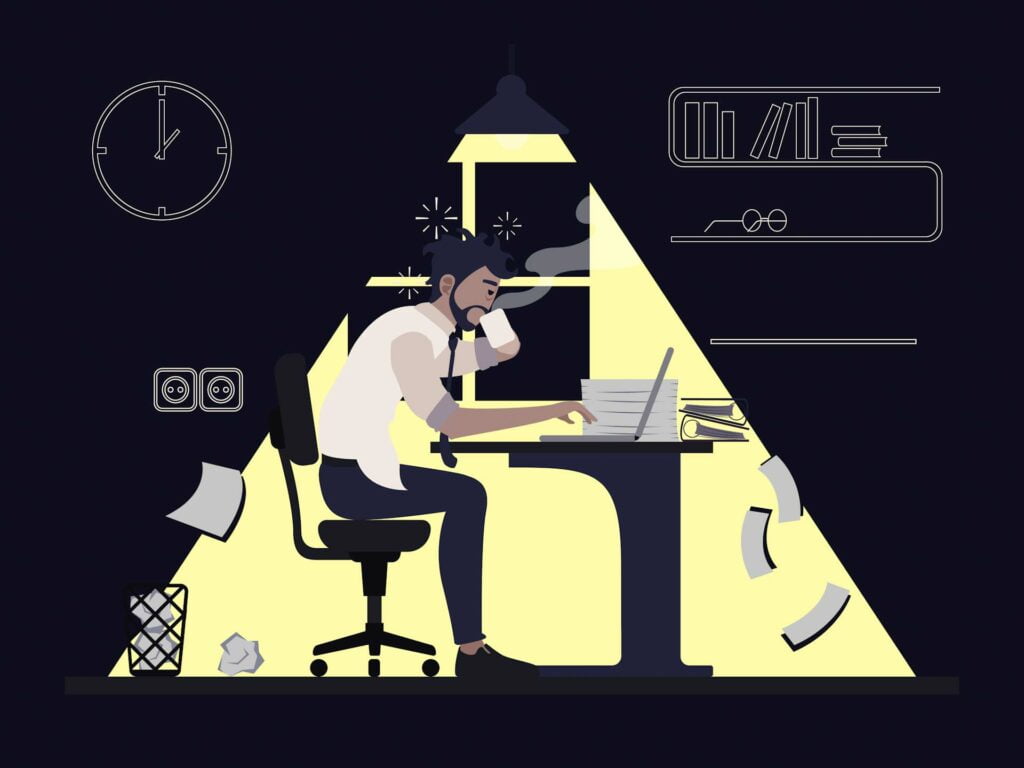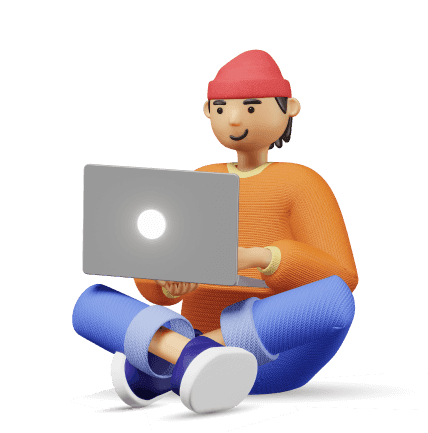
A time tracking app can be a powerful tool for startups, especially those that work with remote teams. It allows managers to identify productivity leaks, underperforming projects, and hidden expenses. It promises small businesses the visibility of their needs as well as opportunities for increasing profit. Even with its numerous benefits, many still consider it as a weapon used by dark side wielders. After all, if used incorrectly, it can raise several questions on ethics and privacy.
Is it ethical to track employees? Up to what extent can we justify this practice? Is there a way to monitor your remote worker’s activities without infringing their privacy and demoralizing them? Of course, it’s not easy to answer these questions. Even so, it’s still important to consider them.
The Ethics Involved in Monitoring Work Hours
Sociologists and philosophers have been exploring the concept of “the gaze” for hundreds of years in various art forms. However, Michel Foucault extended this notion into the parameters of surveillance. In Discipline and Punish, the French philosopher argued that the gaze becomes the ideal channel for establishing power and domination. Foucault added that the steel bars are not the primary elements that create order in a prison. Instead, it is people’s submission to the impenetrable and omnipresent gaze.

When English philosopher Jeremy Bentham designed the Panopticon in the mid-1700s, he intended the system to force inmates into self-regulating their behavior. The Panopticon’s layout leaves them unaware of whether they are being observed or not. Since they instinctively assume that they are being monitored at all times, they tend to act accordingly.
The Panopticon may be centuries old, but it still bears an enduring appeal to this day. It is evident in the existing open office plans across the globe. However, we can agree that the labor environment around the world is quickly changing. With companies shifting to remote work, the traditional office setting may no longer be indispensable. Despite that, businesses still found a way to instill discipline among employees working from home. By using time tracking software, companies can still ensure the productivity of their workers. After all, studies have shown that people tend to work faster when they are aware that they are being monitored.
However, when overly done, time tracking can cause widespread anxiety. No one wants to work with the fear of “the gaze” even in the virtual setting. In some cases, being too self-conscious can be detrimental to productivity. So, while task monitoring offers several advantages, it’s always necessary for companies to ask this question:
What are the ethical issues in tracking remote workers’ work hours?
How Ethical Is Computer Monitoring Software?

As we’ve mentioned, time tracking apps can be helpful for companies in improving estimates, streamlining operations, and allocating resources. With higher efficiency, your business can generate more profit and offer better benefits and pay to employees. So, ideally, it should be a win-win scenario.
The key to achieving this is recognizing task monitoring for what it is—a double-edged sword. It can either have favorable or unfavorable consequences, depending on how you use it. It can either damage or improve employee morale according to the motivations of the managers, executives, and business owners who use it. While Traqq is a proponent of time monitoring, our organization advocates the use of this system in an ethical and responsible manner.
So, how do you ensure that your time tracking system won’t create fear and frustration among your remote workers? Here are some tips on collecting data while preserving trust and privacy:
1. Choose a Time Tracking App that Promotes Ethical Monitoring
Time tracking programs simplify the process of generating timesheets. Instead of manually calculating the hours and typing or writing the accompanying tasks or projects, employees can use a program to automate everything. What’s more, these tools can gather data accurately, lowering the risk of human errors. They allow managers to analyze timesheet info and generate insightful reports with just a few clicks.

However, it is worth noting that not all time trackers are made the same. There are flawed tools out there that pose security and privacy risks. Without conducting due diligence, you may end up with a program that may leak your employee’s data and other sensitive information. As such, it is vital to choose a time tracker that promotes ethical monitoring. Take Traqq as an example. This tool protects the user’s privacy by intentionally reducing the quality of the video clips and screenshots it collects. These media files are blurred to the extent that would prevent the visibility of sensitive and personal information, including passwords and private messages.
What’s more, Traqq was developed with multiple layers of protection across a distributed, reliable structure. It uses military-grade encryption to ensure that the data transmitted through the tool stays private and secure. So, while the screenshots and video clips are blurred, Traqq adds another layer of protection with AES-256 encryption.
2. Promote Transparency
In PwC’s 19th Annual Global CEO Survey, 55% of the respondents believed that one of the threats to their organization’s growth is a lack of trust. So, when implementing a time tracking system, it is crucial to be honest, open, and transparent with your remote employees. Ensure that they understand the new policy, the features of the employee monitoring software, and what kinds of data will be collected. It’s essential to explain how justified the time tracking system is.
Make sure that they know how you’re protecting their privacy. You can also gain their trust by putting everything in paper. You can update existing employment contracts to ensure that all the details and scope of the new system are crystal clear. This way, they won’t feel like you’re taking advantage of them.
3. Handle the Info with Care
Along the process of tracking time, you might come across some sensitive information. A survey conducted by Salary.com revealed that 39% of employees at least an hour a week on activities that are not related to work. So, while your remote workers are on time trackers, they may still visit websites that have nothing to do with their jobs. You may discover from the reports that one employee is visiting adult sites during work hours or another is spending a lot of time shopping online.
Even if you find workers wasting time, you should still protect their privacy. Make sure that the data you collect is secure, preventing it from falling into the hands of nosy colleagues or prying eyes. In general, using a cloud-based tool with reliable encryption is the safest option. Again, we recommend Traqq in this case because the program ensures that all data and passwords are encrypted in transit. What’s more, the tool stores the info in a secure data center.
4. Make Time Tracking Convenient
Time tracking is intended for improving efficiency, not hampering it. So, the monitoring system defeats its purpose if your employees are spending so much time and effort filling in timesheets. Your workers already have a lot in their hands. It’s your responsibility to make time tracking as simple and hassle-free as possible. Here’s another area where you’ll love Traqq. It is an automated stopwatch that works online and offline. It instantly syncs data once the user connects to the Internet. What’s more, it sends smart alerts and notifications in case the user forgets to activate their timer. Even invoicing is automated, which makes billing and payroll processing convenient.
Conclusion
It is true that there is a dark side to employee monitoring. So, it is critical that you choose a Windows and Mac time tracker with screenshots that promotes ethical tracking, This way, you can protect the privacy of your remote workers and avoid damaging employee morale.

